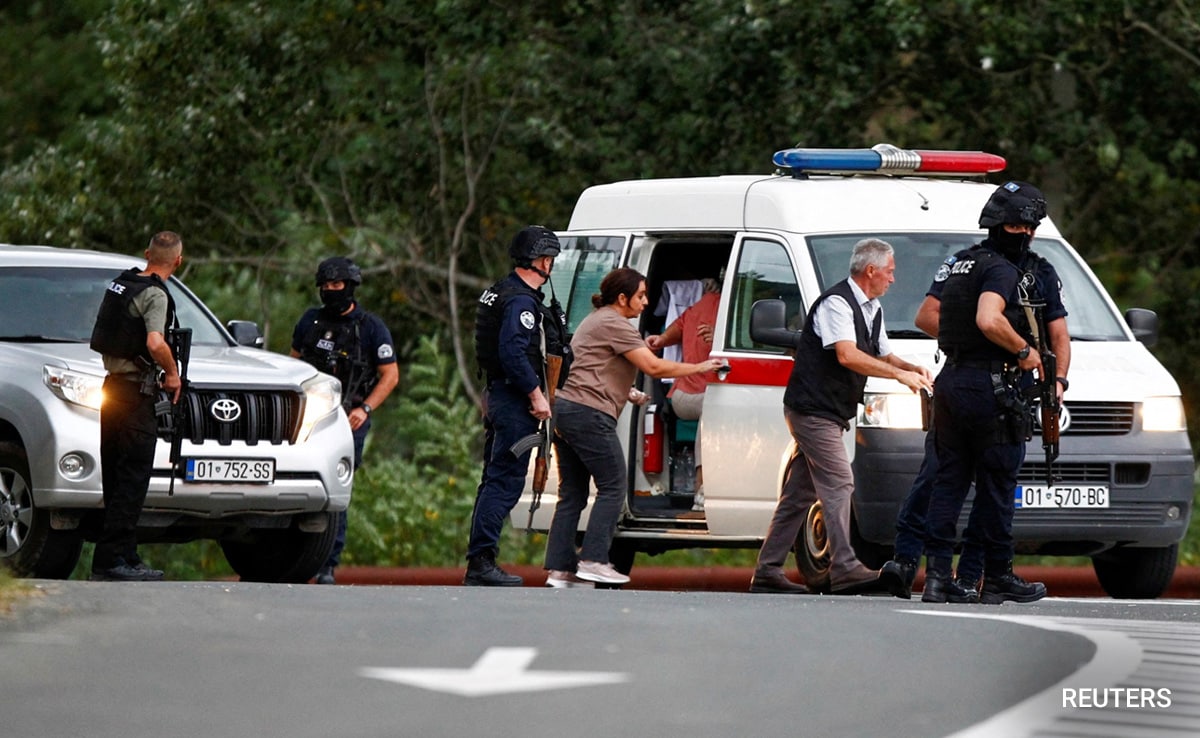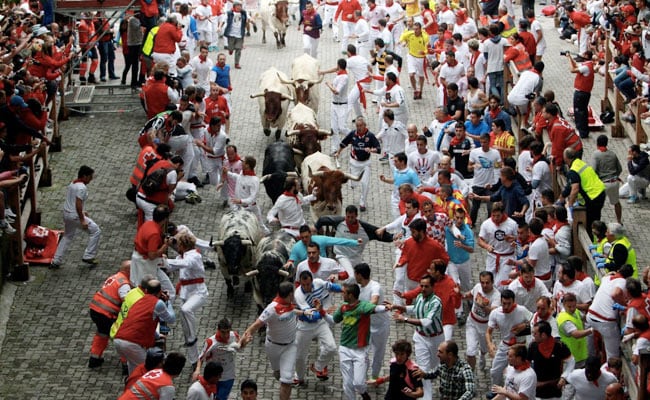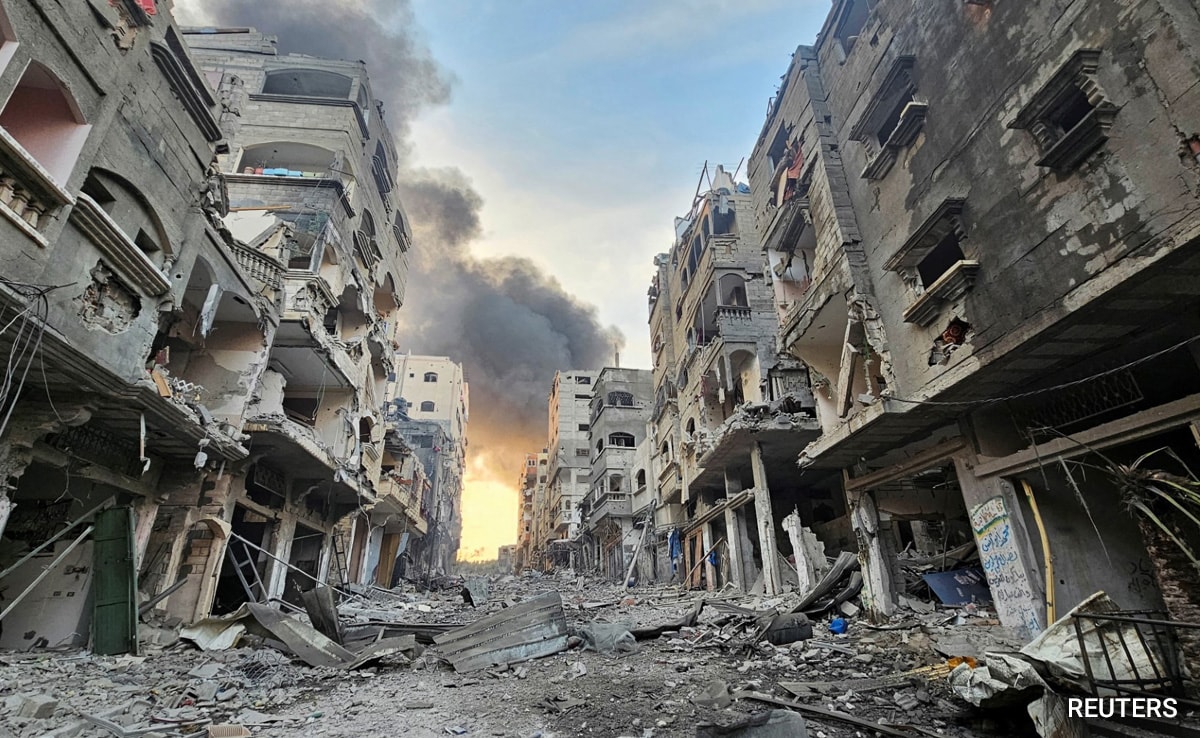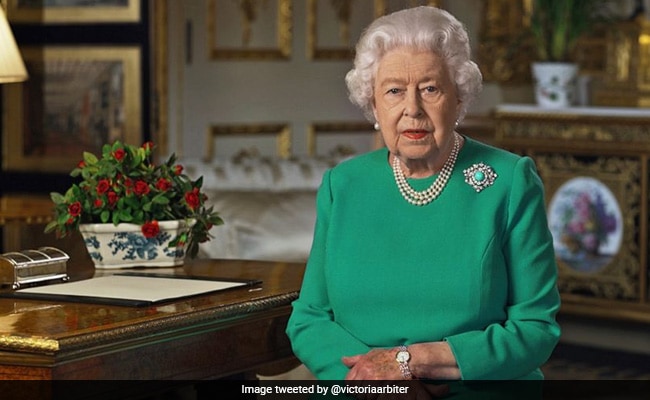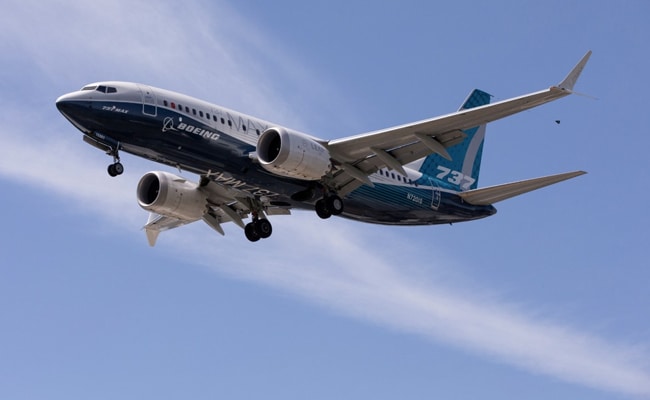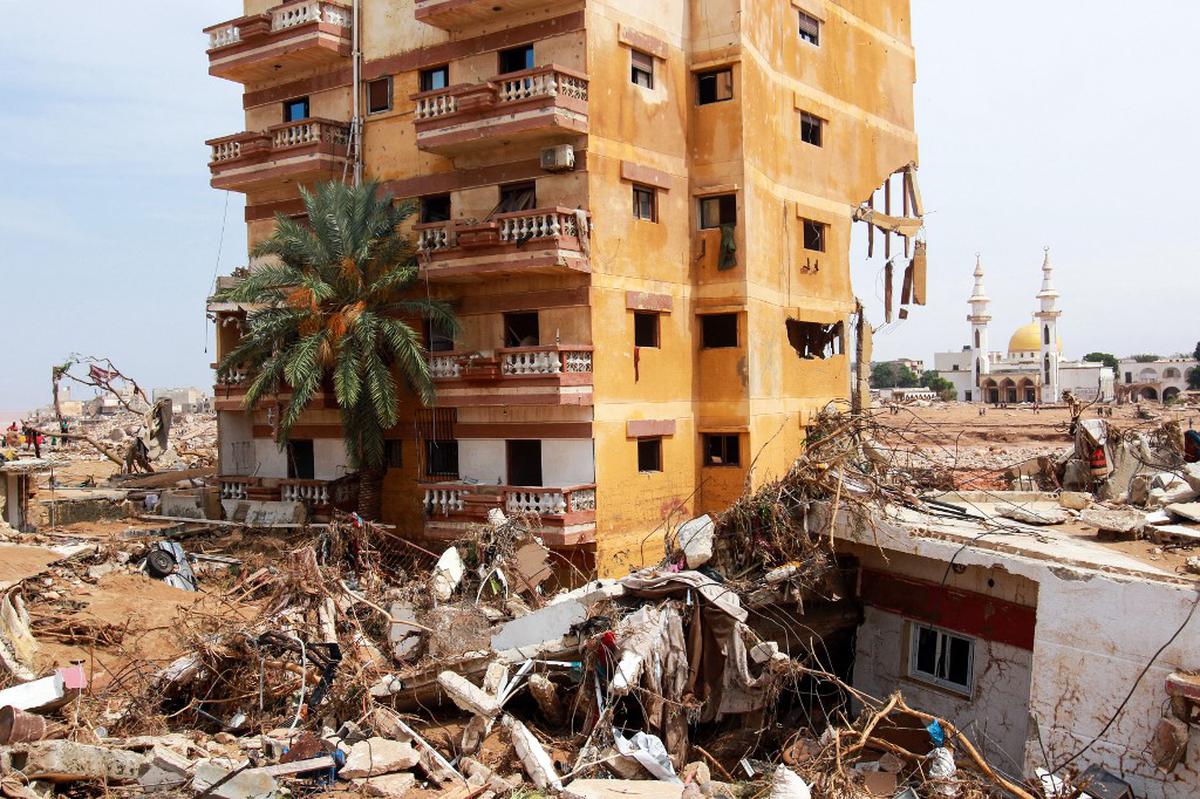The Serbs have never accepted Kosovo’s 2008 declaration of independence.
North Mitrovica:
Gunmen in armoured vehicles stormed a village in an ethnic Serbian-majority region of Kosovo on Sunday, battling police and barricading themselves in a monastery in a resurgence of violence in the restive north.
Kosovo police said one officer and three of about 30 attackers died in shootouts around the village of Banjska.
Monks and pilgrims were locked in the Serbian Orthodox monastery’s temple as the siege raged for hours.
Ethnic Albanians form the vast majority of the 1.8 million population of Kosovo, a former province of Serbia. But some 50,000 Serbs form the majority in the north, where clashes in May injured dozens of protesters and NATO alliance peacekeepers.
The Serbs have never accepted Kosovo’s 2008 declaration of independence and still see Belgrade as their capital more than two decades after a Kosovo Albanian guerrilla uprising against repressive Serbian rule.
It was unclear who was behind Sunday’s violence, but Kosovo’s Prime Minister Albin Kurti and Interior Minister Xhelal Svecla blamed “Serbia-sponsored criminals”.
“They are professionals, with military and police background,” said Kurti, urging their surrender.
Serbian officials had no immediate comment, though President Aleksandar Vucic was to give a statement in the evening.
The Serbian Orthodox Church’s diocese of Raska-Prizren, which includes Banjska, said men in an armoured vehicle stormed the monastery compound, forcing monks and visiting faithful to lock themselves inside the temple.
“Armed masked men move around the courtyard and occasional gunshots are heard,” it said in a statement.
“The Diocese strongly condemns the open violence being applied at the Serbian Orthodox Church religious facility, urging all sides to end the conflict as soon as possible.”
Police said the attackers first positioned heavy vehicles on a bridge into the village. They shot at police who approached them before heading to the nearby monastery.
As well as the fatalities, three police officers were injured in the shootouts, Kosovo police said.
INTERNATIONAL CONDEMNATION
The head of the U.N. mission in Kosovo, Caroline Ziadeh, and EU foreign policy chief Josep Borrell condemned the violence.
“More innocent lives are at risk in ongoing hostilities in the surroundings of Banjska Monastery,” Borrell said, adding that EU and NATO missions in Kosovo were liaising with authorities. “These attacks must stop immediately.”
NATO troops, along with members of the EU police force EULEX and Kosovo police, could be seen patrolling the road leading to Banjska, according to a Reuters reporter nearby.
Journalists were barred from entering the village.
Local media said Kosovo border police closed two crossings with Serbia.
Serbs in north Kosovo have long demanded the implementation of a European Union-brokered 2013 deal for the creation of an association of autonomous municipalities in their area.
EU-sponsored talks on normalising relations between Serbia and Kosovo stalled last week, with the bloc blaming Kurti for failing to set up the association.
Pristina sees the plan as a recipe for a mini-state within Kosovo, effectively partitioning the country along ethnic lines.
Serbia still formally deems Kosovo to be part of its territory, but denies suggestions of whipping up strife within its neighbour’s borders. Belgrade accuses Pristina of trampling on the rights of minority Serbs.
Unrest intensified when ethnic Albanian mayors took office in north Kosovo after April elections the Serbs boycotted.
NATO retains 3,700 peacekeeping troops in Kosovo, the remainder of an original 50,000-strong force deployed in 1999.
The area of north Kosovo where Serbs form a majority is in important ways a virtual extension of Serbia. Local administration and public servants, teachers, doctors and big infrastructure projects are paid for by Belgrade.
(Except for the headline, this story has not been edited by NDTV staff and is published from a syndicated feed.)
Waiting for response to load…





